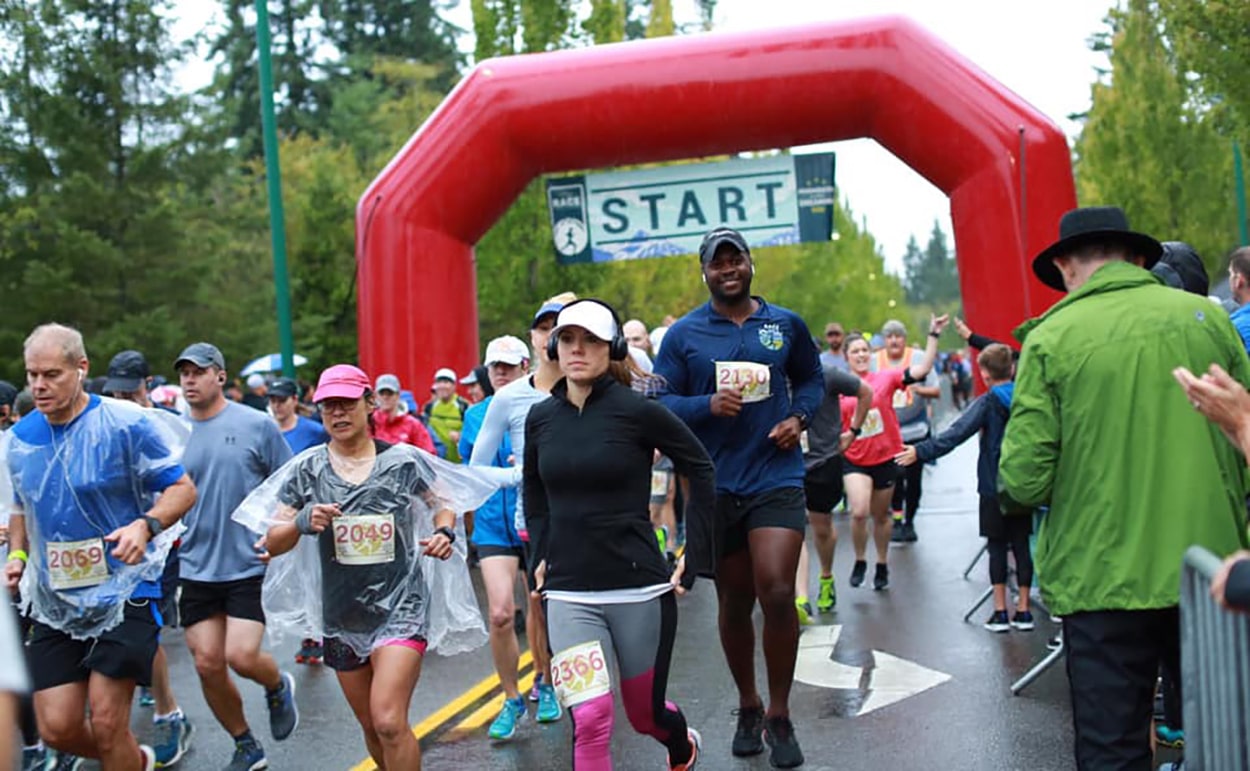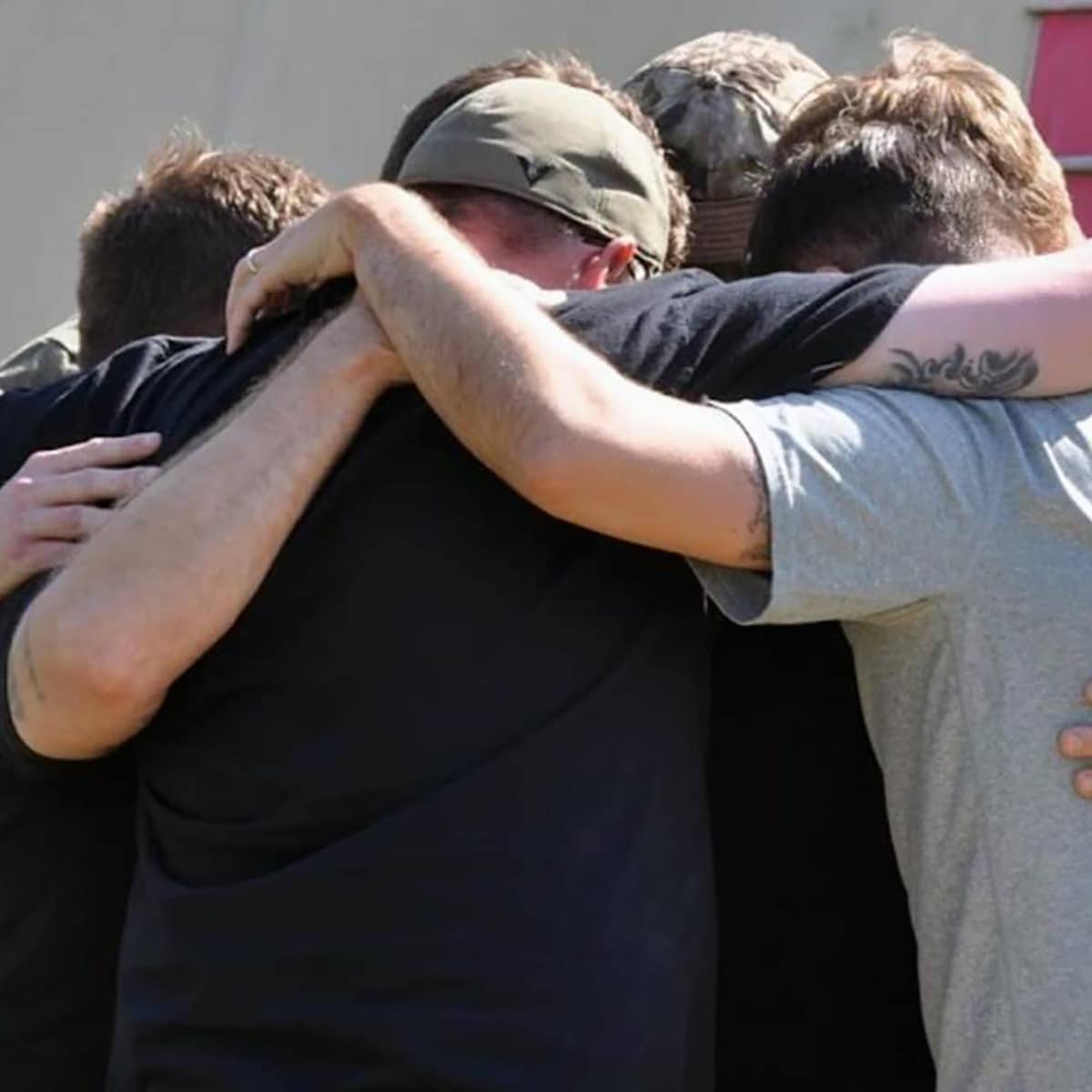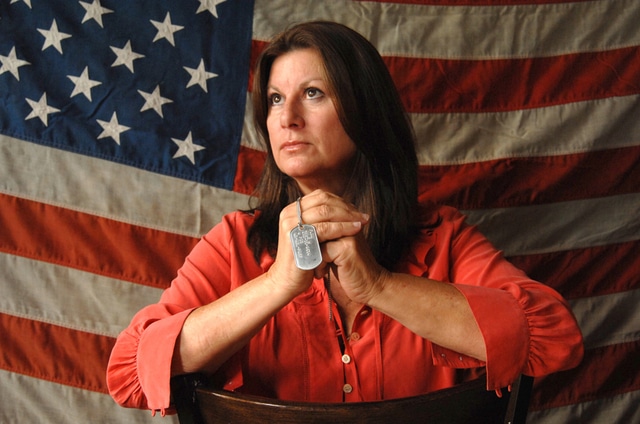Community Health & Wellness
Permission to Start Dreaming Foundation brings hope to traumatized vets, first responders
At the time of his death, Leslie Mayne’s son was a 27-year-old Army veteran.
Health & Wellness Sponsor
Health and Wellness stories are made possible in part by Virginia Mason Franciscan Health, a proud sponsor of Gig Harbor Now.
Her son, Kyle Farr, was suicidal in November 2008, and was admitted to a VA hospital in Maryland. Some months later, still struggling with Post Traumatic Stress Disorder as well as a traumatic brain injury, he was discharged from the hospital.
Mayne says she will never know if Kyle meant to take his own life. She does know that whatever help he got from Veterans Affairs was not enough. To give a kid a bunch of psychotropic drugs and send him off in charge of his own medications — when he is still addicted to alcohol — well, that is never going to end well, she says.
The months following Kyle’s death were the darkest of her life. But even in her grief and in her pain with the way his government treated Kyle, “I never wanted to be an angry mom, or a bitter mom,” Mayne says.
She says, “I wanted to find a way to walk alongside the VA.”

Runners in a previous Race for a Soldier in Gig Harbor. The race is one of the Permission to Start Dreaming Foundation’s biggest annual fundraisers. This year, the Race for a Soldier is Sunday, Sept. 10.
Race for a Soldier
She knew she needed to help other families avoid her family’s tragedy. Mayne was hearing of other veterans living recklessly, more veterans dying of suicide than those who died in Iraq and Afghanistan. She knew she had to bring wiser minds to save these young soldiers.
Mayne worked at the Tides Tavern at the time. With the help of the customers and her fellow employees, she began her efforts by bringing veterans together for a free meal and some peer support.
Next, with the help of volunteers such as her brother — former ESPN anchor Kenny Mayne — she gathered sponsors and staged a half-marathon. The Race for a Soldier has since become an annual event in Gig Harbor. The 2023 race is on Sunday, Sept. 10. Runners can still register to participate in either the 5K or half-marathon. Click here for info.
Mayne created a nonprofit and named it Permission To Start Dreaming, which is a hopeful acronym for PTSD. She researched the newest non-medication therapies. With the proceeds from the first Race for a Soldier, she and her team began paying for veterans to try different methods of healing.
PTSD began sponsoring first responders as well. They sent some to an equine camp. They sent others to recreational challenges.
Warrior Pathh
In the end, they were most impressed with a therapy that came out of scientific research on the brain — a program called Warrior Pathh.
For several years, Permission to Start Dreaming was a pass-through foundation. Veterans and first responders from the Northwest were sent, all expenses paid, to Warrior Pathh camps in Virginia or Arizona. In 2020, Mayne’s foundation was given money by the parent foundation and asked to start a Warrior Pathh program in the Northwest.
She and her board members hired staff and rented space at a camp in Port Orchard. Then they began enrolling groups of 6 to 8 veterans for a 90-days of post-traumatic growth, beginning with a week of intensive wellness training at the campsite.
This year, 14 years after Kyle’s death, Mayne has actually achieved her goal: to walk alongside the VA. Mayne’s Permission To Start Dreaming Foundation applied for and got a $750,000 federal grant to expand on their Warrior Pathh work. Veterans Affairs workers supervise and measure their results.

The Gig Harbor-based Permission to Start Dreaming Foundation brings together veterans and first responders to help them heal from the invisible wounds of war and service-related injuries.
The grant is described as “a pilot program to explore alternative mental health treatments and to advance efforts by the VA and local communities in preventing suicide.” The grant can be renewed next year and the year after that.
In funding the grant, the U.S. Congress named it in honor of Staff Sgt. Parker Gordon Fox, an Army sniper instructor. Fox was said to be a kind and generous man. He died by suicide at the age of 25.
“I am pretty proud of getting that Sergeant Fox grant,” Mayne says. “We have a lot of smart people doing the math, collecting the data.” Hundreds of organizations vied for the grant, she notes. And she is proud of working with the VA.
Partners with the VA
Justin Uhler, a veteran of the Iraq war, says the Fox grant is revolutionary. “This is the first time the VA has partnered with alternative organizations and looked at alternatives for managing post traumatic stress. Up until recently, at the VA, it has either been medication or talk therapy or some combination of both.” He says he has often wondered if medication was part of the problem when it comes to deaths of despair.
“We anticipate being incredibly tight partners with the VA,” he says. He is confident that the Warrior Pathh model —of peer-led, unmedicated PTSD treatment —will prove itself.
Uhler works as a management consultant. But ever since he came back from war, he has been looking for a purposeful way to volunteer. He found what he sought at Permission To Start Dreaming and is now the president of the board of directors. He went through the Warrior Pathh training himself.
“I call it Good Human School,” Uhler says. He wishes everyone could attend.
Trauma and combat
We all carry a weight of past pain, even trauma, he says. We may have had a sibling or parent die, or been hurt as children.
When you take your past with you into combat, every stress gets magnified, he says. He didn’t come home from war with flashbacks and nightmares, but he didn’t come home feeling at home either.
“I struggled with the challenge of transition.” The military gave him a powerful identity and immense responsibility. At 27, he was a lieutenant in charge of 45 men and millions of dollars worth of equipment. “When you jump back into civilian work, a lot of that doesn’t carry over.”
Part of the struggle for veterans is lack of purpose, he notes. Also, a lot of what you learn overseas works perfectly for a threatening environment but is not healthy in civilian life. For example, Uhler came home hyper-vigilant.
Every time he went to a restaurant, he had to find the right seat. He’d be jumpy if he couldn’t see the whole place. Almost subconsciously, he would monitor the room.
This is a good tactic for surviving a bomb, but not for looking into your wife’s eyes and really listening to her.
Being present
In Warrior Pathh, he learned how to take the skills he learned in the military — such as awareness — and attune the skills to peacetime. One of his first assignments at the Warrior Pathh retreat center was to take a walk. To look at the trees, hear the gravel crunching underfoot, feel the wind shifting. To be aware.
“You take what you learned from the retreat and you learn how to be present in the place you are at,” he explains.
It doesn’t all happen in that week away, of course. During the retreat, you are taught 31 wellness skills and then you keep working on them. You meet regularly with your peer team for support.
Like many other veterans and first responders, Uhler has kept up with the transcendental meditation he learned from a certified instructor at the Warrior Pathh retreat. “I am a Christian, so, after the retreat, I have retooled transcendental meditation into my prayer practice,” he says. And being aware, being in nature is still part of his wellness practice.
No one integrates all 31 practices into their lives, of course, but some, such as healthy eating and exercise and gratitude are foundational.
‘You are not broken’
Mayne and Uhler agree that the main lesson of Warrior Pathh is, “You are not broken. You were trained to do a job and you did it well and now you need to reorient for the environment you are in today.”
We need to put an end to the devastating loss of lives, Mayne says, “We need these people to be the best versions of themselves. We need them to shed those warrior clothes. Their best days of leadership are still ahead.”

Leslie Mayne in 2010

